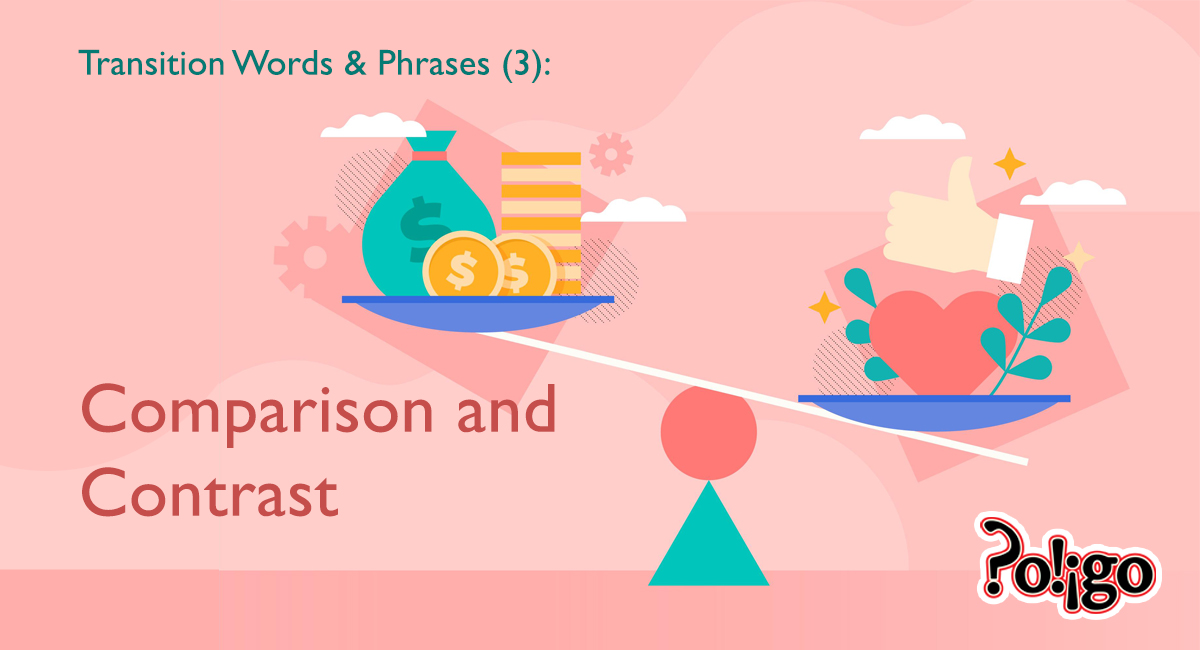
We use some transition words and phrases to compare or contrast ideas. When you compare ideas, you show how they are similar. When you contrast ideas, you show how they are different.
These words and phrases compare ideas:
likewise like similarly in the same way just as too also
These words and phrases contrast ideas:
unlike however but on the other hand while yet although even though conversely
nevertheless in contrast to
Most of these transition words and phrases are used at the beginning of a sentence or clause. Here are some examples:
- Dogs need to be walked and played with daily. Likewise, pet parrots need frequent attention from their owners.
- Greece is a popular winter vacation spot for Europeans. Similarly, many Americans spend their winter vacations in the Caribbean.
- While some people don't like the cold winter weather, other people thoroughly enjoy it.
- Cars are expensive and cause pollution, yet many people drive them.
However and on the other hand can come after the subject. In this case, they are used between two commas. Look at the following example:
- Big cities are crowded and noisy. Small towns, on the other hand, are peaceful and quiet.
Like and unlike are followed by a noun or a gerund (verb + ing):
- Like overeating, lack of exercise can lead to weight gain.
- Like most people, I enjoy relaxing at home on weekends.
- Unlike buses, subways are not affected by traffic jams.
Practice 1: Choose the correct transition word/phrase to complete the following sentences:
- Buses can carry many passengers at one time, also/while cares can only carry a few.
- Taking a walk every day can help you stay strong and healthy. Likewise/Nevertheless, bike riding is a good way to get exercise.
- Like/Unlike cities, small towns generally offer limited job opportunities.
- Many people find small towns boring. Similarly/However, others enjoy a small town's slow pace of life.
- Like/Unlike beach resorts, lakeside resorts offer families the opportunity to enjoy all kinds of water sports.

